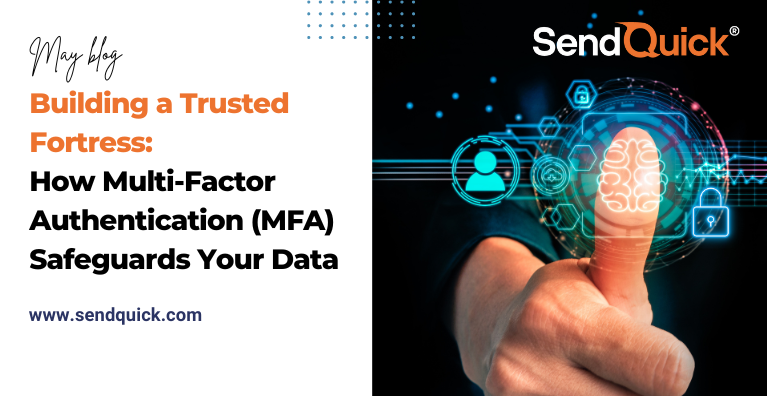Where data breaches and online threats are rampant these days, it has become crucial to fortify our digital presence with robust security measures. One such powerful defense mechanism is MFA.
By combining multiple layers of verification, MFA creates a trusted fortress around our data, ensuring that only authorized individuals gain access. In this article, we will delve into the world of multi-factor authentication and explore how it safeguards your valuable data.
Understanding Multi-Factor Authentication:
To grasp the concept of multi-factor authentication, it is essential to comprehend its components. MFA typically involves three factors: something you know (e.g., a password), something you have (e.g., a mobile device), and something you are (e.g., biometric data). By requiring multiple factors for authentication, MFA adds an extra layer of security beyond just passwords.
Strengthening Login Security:
Passwords alone have proven to be vulnerable to attacks such as brute-forcing, phishing, and credential stuffing. However, with multi-factor authentication, even if an attacker manages to obtain your password, they would still need the additional factor(s) to gain access. This significantly reduces the risk of unauthorized entry and strengthens the security of your login process.
Protecting Against Data Breaches:
Data breaches have become increasingly prevalent, exposing sensitive user information and causing immense damage. By implementing MFA, you can add an additional obstacle for cybercriminals attempting to breach your accounts. Even if they obtain user credentials through a breach, they will still face the hurdle of the second or third authentication factor, making it significantly harder to compromise your data.
Mitigating Phishing Attacks:
Phishing attacks continue to be a major concern for individuals and organizations alike. Attackers craft convincing emails or messages to trick users into revealing their login credentials. With MFA, even if a user unknowingly falls victim to a phishing attempt and shares their password, the additional authentication factor acts as a safeguard, preventing unauthorized access.
Leveraging Biometrics for Enhanced Security:
Biometric authentication, such as fingerprint or facial recognition, is becoming increasingly prevalent in MFA systems. Biometrics offer a higher level of security, as they rely on unique physical attributes that are challenging to replicate. By incorporating biometrics into the authentication process, MFA adds an additional layer of protection against unauthorized access.
User-Friendly Experience:
Despite the added security, multi-factor authentication does not necessarily mean a complicated user experience. Modern MFA solutions provide streamlined and user-friendly processes. Technologies like push notifications, one-time passcodes (OTP), or hardware tokens make the authentication process seamless, ensuring a balance between security and convenience.
Implementing MFA in Various Settings:
Multi-factor authentication is not limited to personal accounts; it is widely adopted across industries and sectors. From banking and e-commerce to healthcare and enterprise systems, organizations recognize the importance of MFA in protecting sensitive data and ensuring secure access to their systems.
The Future of Multi-Factor Authentication:
As technology evolves, so does the realm of multi-factor authentication. Innovations such as adaptive authentication, contextual factors, and passwordless authentication are shaping the future of MFA. These advancements aim to provide even stronger security measures while reducing friction for users, opening up new possibilities in securing our digital identities.
Conclusion:
In an era marked by cyber threats and constant data breaches, building a trusted fortress around your valuable data is imperative. Multi-factor authentication emerges as a formidable defense mechanism that significantly strengthens security, mitigates risks, and protects your digital identity.
By combining different factors of authentication, MFA safeguards your data and offers peace of mind in an increasingly interconnected world. Embrace the power of multi-factor authentication and fortify your digital presence with an impenetrable shield of security.
Remove the hassle of implementing MFA today with the help of SendQuick, Singapore’s leading provider of enterprise mobility solutions. Easy to implement and with minimal maintenance, SendQuick Security and MFA provides the extra layer of security you need to effectively minimise the risk of a wide range of potential cyber-attacks – it equips clients with secure remote access via MFA using SMS and Email One Time Password (OTP), Mobile Soft Token and SingPass (Singapore’s national digital identity).
Apart from security and MFA, SendQuick also offers other industry-leading solutions like business process automation, IT alert management systems, and SMS gateway in Singapore. To learn more about our products, visit our solutions page today or contact us to speak with a SendQuick expert for more details.






